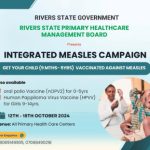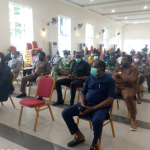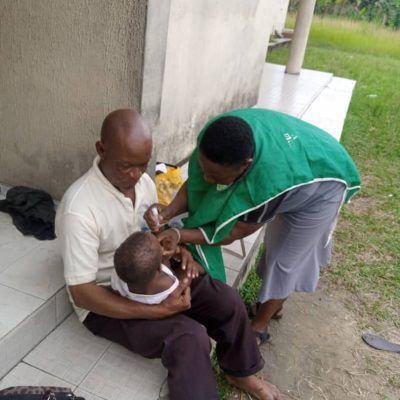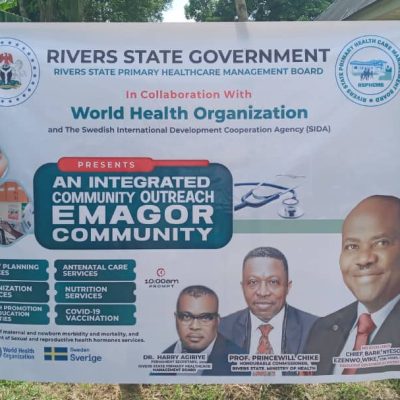2022 World Food Day
Nigeria’s food and nutrition situation and the attendant poor global image in terms of economic and developmental milestones is increasingly a major concern to the Government of Nigeria, development Partners, and the global community.
An indicator of a deteriorating health and nutritional status among the under five children and should be given urgent and priority attention. There is therefore the need for a coherent and strategic approach by Partners and frontline citizens of the State to champion the fight against malnutrition in the state.

Leave no one behind
The Rivers State Primary Health Care Management Board is working assiduously to response to Nutrition issues in the State such as: Malnutrition: Undernutrition, Wasting, Stunting, Overnutrition etc. One of these responses is in line with the celebration of this year’s World Food Day with the Theme: Leave No One Behind: Better production, better nutrition, a better environment, and a better life

Nutrition
Poor nutrition and stunting leads to a cycle of poverty in the community and the nation. The World Bank estimates that countries blighted by undernutrition loose at least two to three percent of their gross domestic product as well as billions of dollars in salaried employment and avoidable health care cost.

Dawn of life
The Board is currently providing sensitization in churches, health facilities and food demonstration activities in some Local Government Areas, provision of complementary foods to some malnourished children etc.
Dawn of Life (Non-Governmental Organisation) is collaborating with the Primary Health Care Management Board in ensuring nutrition messages are properly disseminated in the Local Government Areas.
Fighting malnutrition therefore is one of the most cost-effective investment a country can make. Successful Country-led program models that address the underlying determinants of undernutrition (poverty, agriculture, policy environment, health care, HIV/AIDs, and gender equity) have been designed and implemented. Few States in Nigeria have keyed into these program models and have documented evidence and results leveraging on strong commitment of Government, Partners, and key state actors. Important to achieving and maintaining significant reductions in malnutrition requires a more prominent role for nutrition in the policy making process, which then translates into effective policies and programs that address challenges at households, community, and national levels














